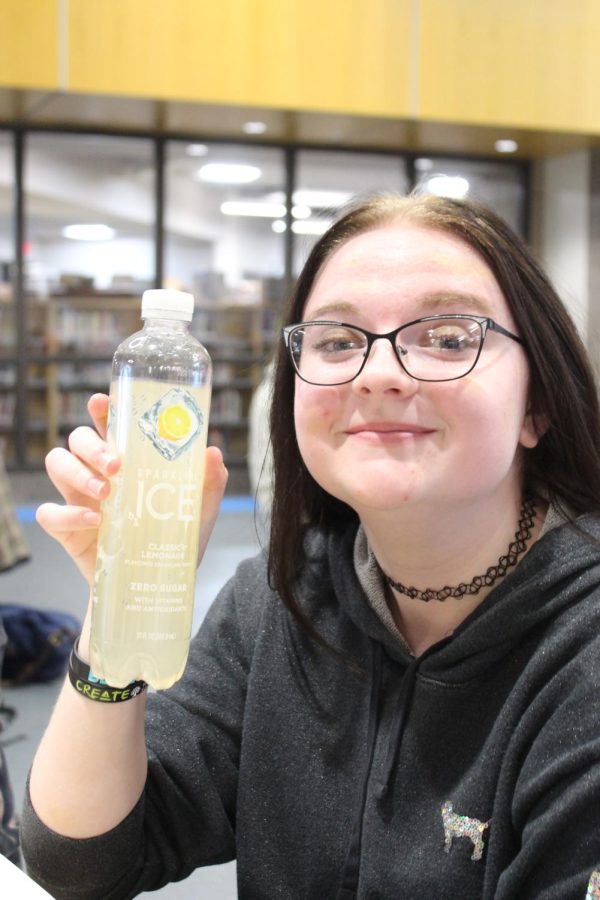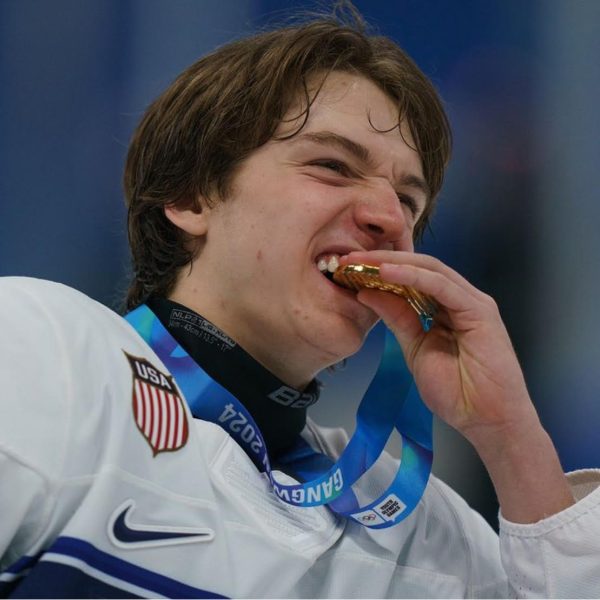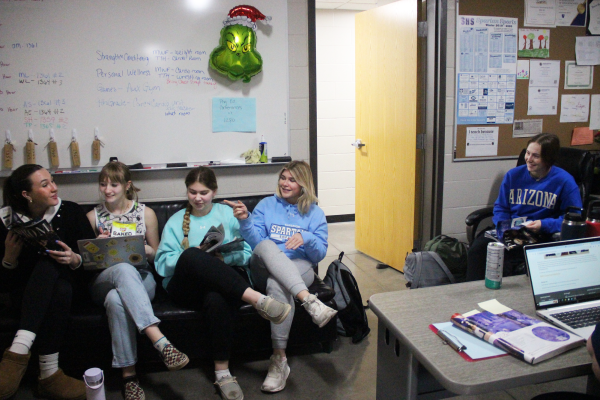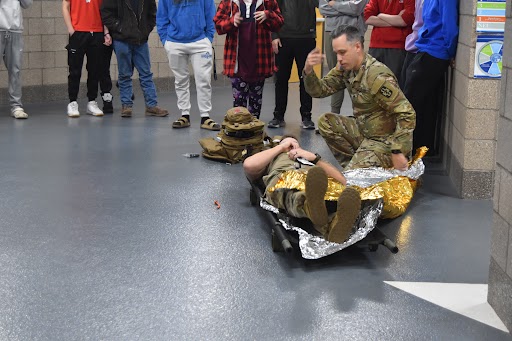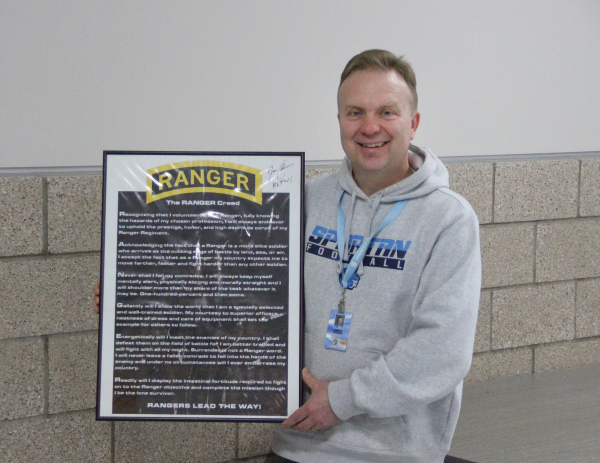The Need For Speed: How energy drinks can poorly affect sleep, health and education
Senior Skyler Magnuson enjoys a healthier alternative to energy drinks, the caffeinated Lemon Ice beverage from the cafeteria, Nov. 16. Magnuson says she has enjoyed the benefits of cutting back on energy drinks.
January 11, 2022
With an average of 21 teaspoons of sugar per serving and around eight times the amount of caffeine in a soda, an energy drink is guaranteed to give consumers a temporary boost of energy. Even though these caffeinated drinks are a convenient solution for a tired student after a night of gaming or homework, the rush won’t last very long – the only things that will are health and sleep problems.
“Oftentimes, energy drinks spike blood sugar, and when those levels come back down, it results in a sugar crash. You’ll feel wiped out, and even more tired than before,” St. Luke’s physician assistant Toni Roberts said.
Roberts also mentioned that the beverages affect heart rate, which can lead to tachycardia, dehydration, high blood pressure and increased insomnia rates, which increases the lack of sleep.
According to the CDC, an average energy drink also has a pH (potential hydrogen) of 1.5 to 3.3, which is comparable to the sulfuric acid in a car battery ultimately making the drink detrimental to tooth health by corroding enamel.
Despite the pH levels, senior Noah Lackner believes that although the drinks are unhealthy, they aren’t as bad as people portray them to be.
“It’s just carbonated water and caffeine so I don’t think they are that unhealthy,” Lackner said. “I also usually sleep around nine hours a night, but can easily go without sleep as long as I have a Monster.”
Not only are the beverages affecting one’s health, it also can take a toll on education.
“I was only sleeping five, maybe six hours a night when I regularly drank energy drinks and was missing a lot of school just to sleep more because I stayed up late, which overall hurt my grades,” senior Skyler Magnuson said.
The lingering effects of sleep deprivation aren’t just in the classroom, but also in physical education. Gym teacher Deanna Wells explained that every so often, students won’t change for a particular reason, other than to take a rest in the bleachers and not participate in the scheduled activities.
Wells suggested that there are simple ways to take the edge off sleepiness.
“Make sure that you have a good routine, get up and go to sleep at the same time every day,” Wells said. Your body will get used to it, and getting daily exercise helps. A lot of people will also be on phones and devices at night, avoid them at least an hour before going to bed.”
Students are finding alternative ways to get their caffeine without the unnecessary sugar crash.
“I try healthier alternatives, such as having Sparkling Ice everyday at lunch. I also try to go to bed on time now,” Magunson said.
According to Wells, other alternatives include essence waters, natural teas, and a small serving of plain coffee.


